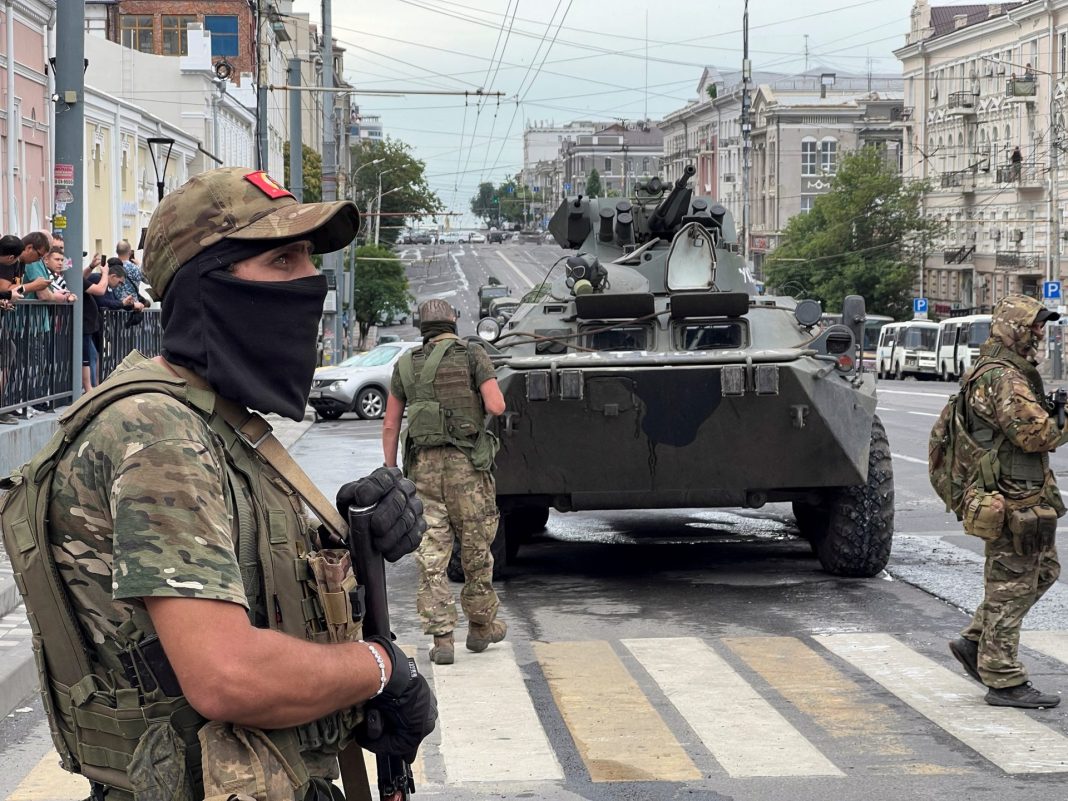There was surprise, a US official said, that Russia’s professional military didn’t do a better job of confronting Wagner troops as they moved into Rostov and up toward Moscow.
Compounding that surprise, a US official said, was the swiftness of the deal that was struck on Saturday, which the Kremlin said was brokered by Belarus.
“I do know that we assessed it was going to be a great deal more violent and bloody,” the official told CNN.
In the end there was no fight for Moscow, where fierce resistance would have been expected. Prigozhin’s stated reason for ending Wagner’s march was a desire to avoid bloodshed, he added.
“Now is the moment when blood can be shed. Therefore, realizing all the responsibility for the fact that Russian blood will be shed from one of the sides, we turn our columns around and leave in the opposite direction,” Prigozhin said.
What Prigozhin’s ultimate aim was in his short-lived campaign remains uncertain.
In the days leading up to Wagner’s march, US intelligence assessed that he was going to challenge Russian leadership, multiple sources claimed, but whether that was to President Vladimir Putin himself or the military leadership he had long railed against is unclear.
Prigozhin has agreed to leave Russia for Belarus, according to the Kremlin, in an agreement apparently brokered by Belarusian President Alexander Lukashenko. However, his current whereabouts remain unclear.
Criminal charges against Prigozhin will also be dropped, Kremlin spokesman Dmitry Peskov stated.
But many questions remain about the deal, its details, and why it was agreed to by two strongmen leaders not known for a willingness to compromise.
US Secretary of State Antony Blinken has also claimed that aborted uprising by the Wagner group may portend greater instability for Putin’s government and will create “openings” for Ukraine to take back territory seized by Moscow’s forces.
“It was a direct challenge to Putin’s authority, so this raises profound questions,” Blinken said on Sunday in a CBS News interview.
“It shows real cracks. We can’t speculate or know exactly where that’s gonna go. We do know that Putin has a lot more to answer for in the weeks and months ahead,” he added.
Blinken’s comments mark the most extensive reaction by President Joe Biden’s administration since Wagner rebelled on Friday against Russia’s military leadership.
“We haven’t seen the last act,” Blinken told CBS host Margaret Brennan.
“We’re watching it very closely and carefully, but just step back for a second and put this in context. Sixteen months ago, Russian forces were on the doorstep of Kiev in Ukraine, thinking they’d take the city in a matter of days, thinking they would erase Ukraine from the map as an independent country. Now over this weekend, they’ve had to defend Moscow, Russia’s capital, against mercenaries of Putin’s own making,” he continued.
Blinken speculated that the Wagner incident will help Kiev gain ground in its counteroffensive against Russian forces in the Donbass region.
“To the extent that it presents a real distraction for Putin and for Russian authorities – that they have to look at, sort of mind their rear, even as they’re trying to deal with the counteroffensive and Ukraine – I think that creates even greater openings for the Ukrainians to do well on the ground,” the secretary of state stressed.
Blinken said Biden’s administration always prepares for “every contingency in terms of what happens in Russia.” He added, “Of course, when we’re dealing with a major power, and especially a major power that has nuclear weapons, that’s something that’s of concern, something we’re very focused on. We haven’t seen any change in Russia’s nuclear posture.”
What happens next in Russia amid “profound internal divisions” is for the Russian people to decide, Blinken continued, stating, “It’s too soon to say with any certainty what the final chapter in this particular book is going to be, the rising storm of Prigozhin . . . . This creates more cracks in the Russian facade.”
